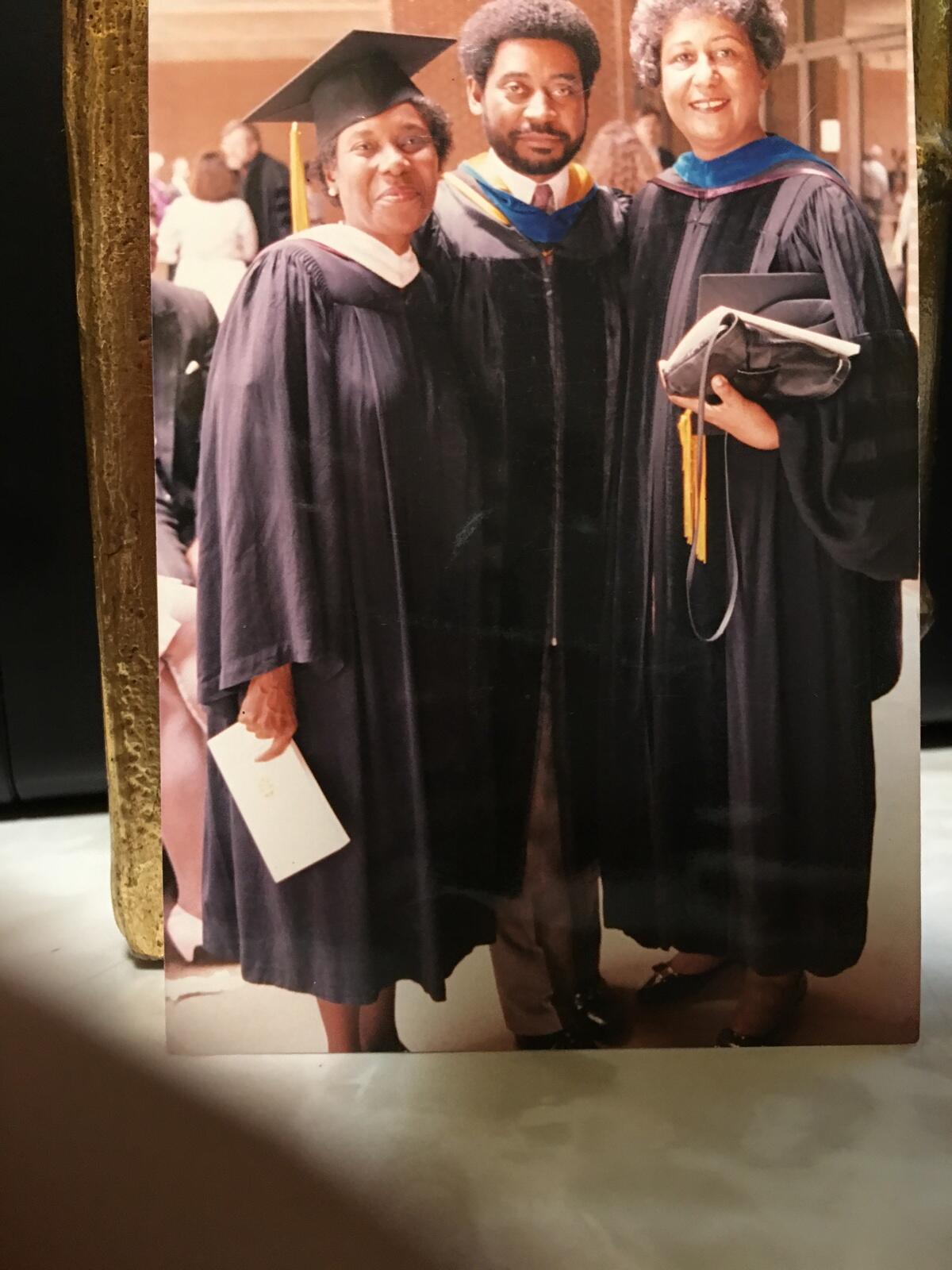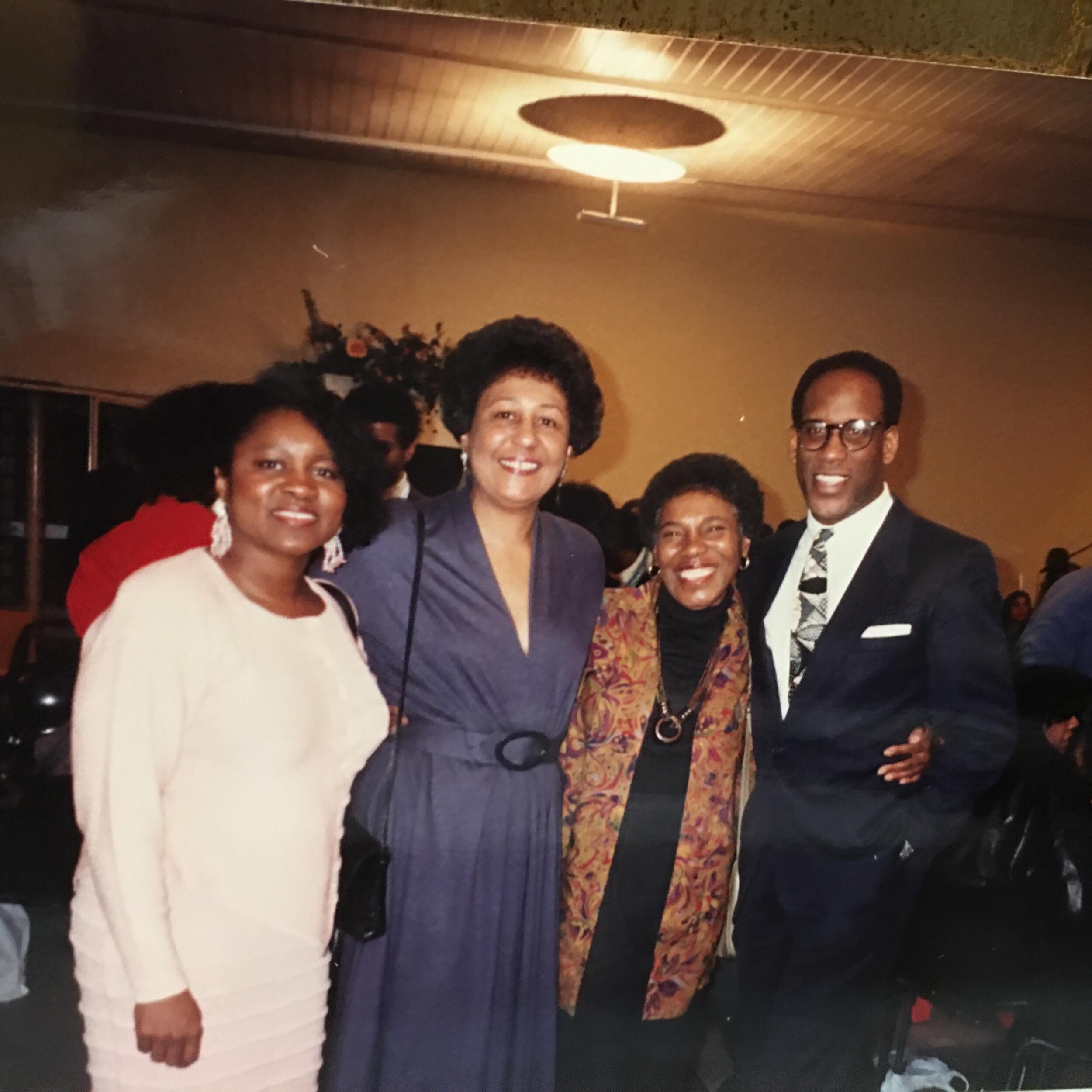
March 15, 2024
In new book, Daryl Cumber Dance chronicles her ties to revered author and VCU colleague Paule Marshall
Share this story
Daryl Cumber Dance had butterflies the first time she met Paule Marshall, the beloved and influential author of novels and short stories.
“I was an ardent fan,” said Dance, Ph.D., an author and retired Virginia Commonwealth University English professor. “I discovered her work after I finished college and was finishing my graduate degree in the 1960s.”
Marshall was a professor emeritus of English at VCU who taught on campus from 1984 to 1994. She authored nine books, including her classic 1959 debut novel, “Brown Girl, Brownstones.”
Marshall’s numerous honors included a Guggenheim Fellowship in 1961 and a MacArthur Fellowship (also known as a “genius grant”) in 1992. She was awarded the John Dos Passos Prize for Literature in 1989 and was honored as a Literary Lion by the New York Public Library 1994. She received a lifetime achievement award in 2009 from the Anisfield-Wolf Book Awards.
Dance and Marshall met at a College Language Association meeting in 1981 and remained friends until Marshall’s death in Richmond in 2019.
Meeting Marshall was “one of those moments I will always remember,” said Dance, who later taught at VCU from 1972 to 1993 and whose recent book, “Remembering Paule: A Photo Memoir of Her Richmond Years,” is about her friendship with Marshall.
VCU News spoke with Dance for insight into the book, which was published in November, and her connection to Marshall.
Can you describe your relationship with Marshall?
Actually, the whole book attempts to describe my relationship with Paule, but even after writing it, I don’t have a simple, direct response to that question.
Paule and I were colleagues at Virginia Commonwealth University. We were the first and only tenured Black professors in VCU’s English Department while I was there. We shared common commitments in our very different teaching and writing careers. Though “truth warriors” was a term I later coined, it is clear that we both committed ourselves to being truth warriors in a world that often misrepresented, distorted and denied our culture, our history, our very being.
We did our work without at first recognizing that our research, our teaching, our writings, our stories, our truths would help to revolutionize the world of African-Diasporic letters and, in some significant ways, help to make America “America” to people who look like us.
What did you admire most about her?

Always I am in awe of her writing, beginning with “Brown Girl, Brownstones,” that first novel that captivated me and made me a Marshall enthusiast. That book and the remarkable body of novels and short stories that followed it sparked a renaissance in the literature of African American women. I am mesmerized by the beauty of Paule’s writing, her historical and psychological exploration of characters, her astonishing rendering of place and her precise and unmatched articulation of dialogue. Let me add, too, that her knowledge of history, of politics, of religion, of the arts continues to amaze me each time I return to one of her works.
But aside from that, I have to admire her as the most disciplined writer/scholar I have ever known. She never allowed anything to interfere with her work. Paule Marshall allowed nothing social, nothing romantic, nothing frivolous, no popular events, no varying locales – nothing – to disrupt her writing. Her goal was always to get the writing done.
Why did you want to write a book about her?
I cannot claim that this book resulted from some plan. In fact, though some people immediately upon Paule’s passing asked me to write a tribute to her, I simply could not compose anything. This was worse than writer’s block – it was absolute paralysis.
Then about 2 1/2 years later, I suddenly awakened at 6:04 a.m., March 2, 2022, with vivid recollections of our friendship zooming through my mind like flashing pictures from a breaking news story. I rushed to the computer and started writing. That sudden, almost mystical, outpouring did not last long.
With each session at the computer, I gradually began to recognize what it was that I wanted to do. I wanted a book that would accomplish what I might have done pre-COVID — gather good friends around a coffee table and bring out pictures and programs and cards and gifts and varied memorabilia from our 30-plus years of friendship. I was indeed well into the manuscript before I recognized that what I wanted was a book that would celebrate our friendship.
To play on the title of Paule’s novel “Praisesong for the Widow,” I wanted to write a praisesong to Paule and to those to whom we were committed.
How did Marshall influence your life over the course of your friendship?
As a Paule Marshall devotee – even disciple – it was my pleasure to share her company, teach with her, lecture and present with her, and participate in conferences with her – all over the Richmond and Virginia area as well as in D.C., Baltimore, New York, New Orleans, Lawrence (Kansas) and Paris.
In some of those trips, because of Paule, I was included in exciting events with many other famous writers. In Washington, D.C., and Paris, in particular, Paule planned special events that gave me opportunities to hobnob with the likes of Ollie Harrington, Toni Morrison, Toni Cade Bambara, Ama Ata Aidoo and Es’Kia Mphahlele.

What do you see as her greatest achievement?
The novels themselves, her teaching and mentoring countless new writers, her many awards. … I also admire her determination to help us understand our connections and relationships to African-Diasporic history and culture, to each other and to the world. Ultimately, she enlightens us to understand that “all o we is one!”
Finally, we should note something that several close friends called to my attention: Paule’s many acts of generosity. Noted Jamaican novelist Velma Pollard shared with me her gratitude for Paule’s gifts to her when she visited Richmond. Nikki Giovanni recalled that when her son was born, “Paule was the first person to visit me and bring congratulations and a present” – this in the face of the harsh media attention to Nikki as an unwed mother.
What do you want people to take away from reading your book about Marshall?
I am delighted that some people who had not read her work have been motivated to do so. As soon as I gave my granddaughter a copy of “Remembering Paule,” she sent me a picture of herself with “Brown Girl, Brownstones.” My publisher went out and bought a copy of “The Fisher King” when he read the first draft of “Remembering Paule.”
Nothing pleases me more than in some tiny way expanding her readership. I am also delighted that reading the book has led many of our mutual acquaintances to reminisce with me about our dear friend.
Subscribe to VCU News
Subscribe to VCU News at newsletter.vcu.edu and receive a selection of stories, videos, photos, news clips and event listings in your inbox.







